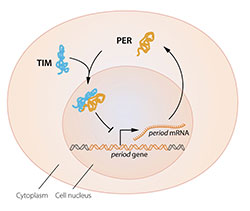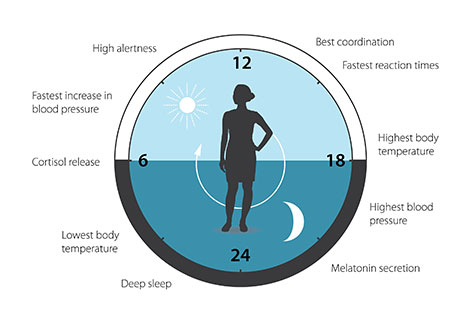This year the 108th Nobel Prize in Physiology or Medicine was awarded to Jefferey C. Hall, Michael Rosbash and Michael W. Young for their “discoveries of Molecular mechanisms controlling the circadian rhythm also known as The Biological Clock”. Their discoveries explained, “how plants, animals and humans adapt their biological rhythm so that it is synchronised with the Earth’s revolutions.”
All three winners are from the US. Hall, 72, has retired but spent the majority of his career at Brandeis University in Waltham, Massachusetts, where fellow laureate Rosbash, 73, is still a faculty member. Young, 68, works at Rockefeller University in New York.
Jeffery C. Hall and Michael Rosbash identified the specific gene PER or The Period Gene which were expressed in fruit flies at night which results in PER Protein synthesis and accumulation in the night. This nocturnal cycle of PER controls and maintains all the biological functions at night. During the day, a negative feedback occurs on the PER Protein. This discovery of negative feedback was done by Michael W. Young. He discovered the gene named TIM (timeless) which is expressed during the day inside the cell. mRNA of TIM binds with PER mRNA protein which stops the expression of PER gene in the nucleus at daytime. Young also discovered a gene which controls the frequency of the cycle, doubletime encoding the DBT protein that delayed the accumulation of PER Protein. This provided insight into how an oscillation is adjusted to more closely match a 24-hour cycle.

Whenever there is a mismatch between this internal clock and the external surroundings, it affects the well-being of the organism. For example, in human beings, we experience Jetlag.
The impact of work of the team is becoming more and more significant day by day. According to Ralf Stanewsky, a professor of molecular behavioural biology at the University of Münster and a former colleague of Hall. “You can see that more and more health issues, human health issues, are boiled down to either genetic defects in the circadian clock or self-imposed problems, by work and jet lag for example,” he said. “This [internal] timer is constantly struggling to reset to what environment people are exposed to. If you shift your clock every week by six hours or three hours, that puts an enormous pressure on your body.” [The Guardian]


Leave a comment